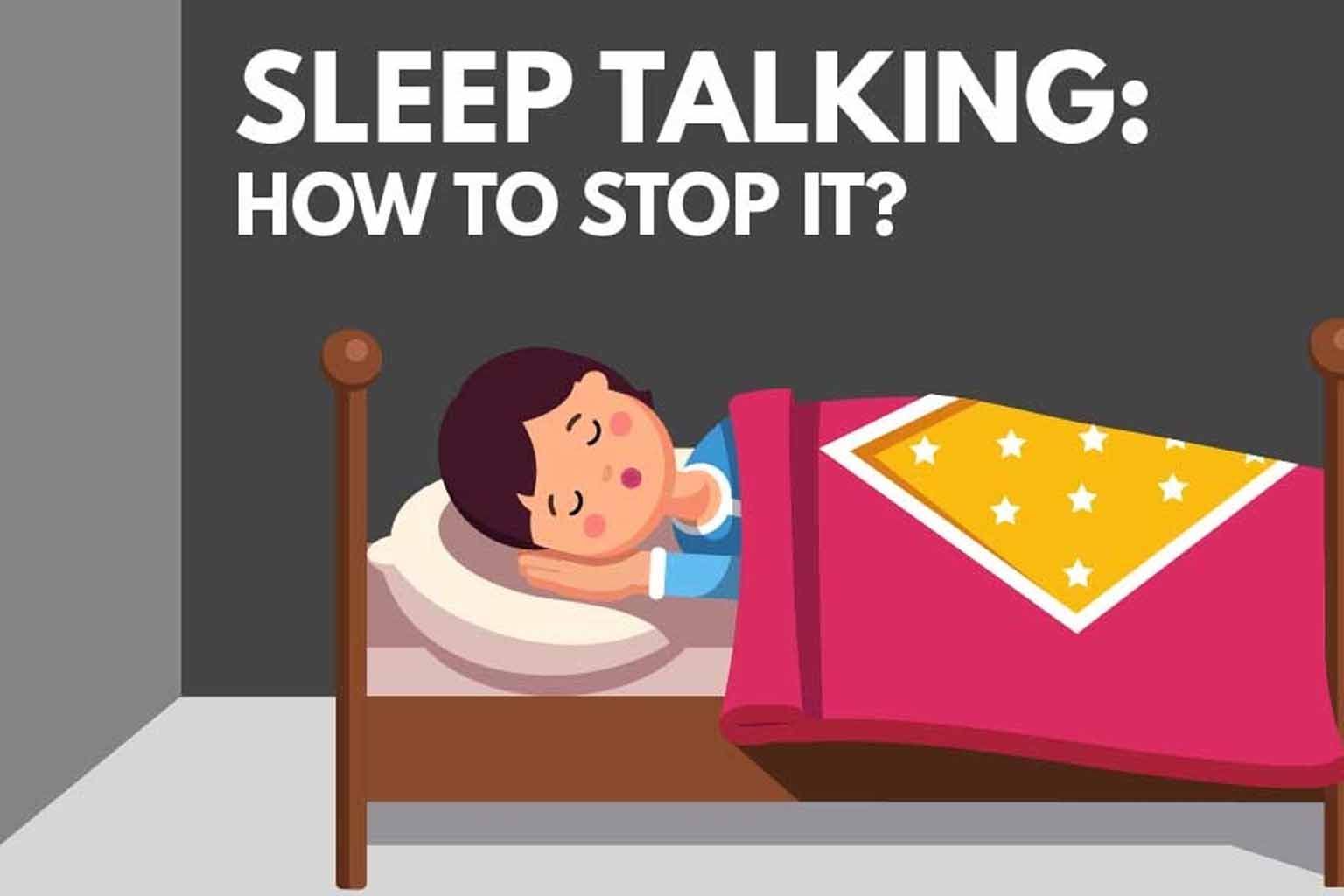Sleep talking is a sleep disorder where a person talks during sleep without being aware of it. This condition is called Somniloquy and can include difficult dialogues or monologues, gibberish, or even mumbling. However, talking in sleep is rare and a temporary situation. Any person can experience sleep talking, though the condition is more in males and children. Sleep-talkers are unaware of their behaviors and speech. Also, the voices and language during sleep talking are different from their wakeful speech- sleep talking maybe a spontaneous occurrence or induced by a conversation with the sleeper.
There is no specific content of sleep talking, some people talk no sense at all, and some people may speak about any past events, experiences, and relationships. According to modern sleep science, it is not a result of a conscious or rational mind. Though not physically harmful, it can bring embarrassment to the person and can annoy a bed partner, roommate, or cause a disturbance in group-sleeping situations. Sleep talkers, often, shy away from sleeping with other people or sleep away from home.
Causes of Sleep Talking
Several reasons can cause talking in sleep: it may be induced by stress, depression, deprived sleep, day-time drowsiness, alcohol as well as fever. In many cases, it runs in the families, although external factors aggregate the behavior. It also occurs concurrently with other conditions like nightmares, sleep apnoea, and REM sleep disorders. In rare cases, it occurs in association with a mental or medical health condition, occurs commonly in persons over 25 years of age, and requires treatment.
Symptoms of Sleep Talking
It occurs during any stage of sleep. When the sleep is lighter, the speech is more intelligible: in stages 1 and 2, the person will have an entire conversation and during stages 3 and 4 the sleep talk will be restricted to little moans and gibberish. Symptoms occur in the severity and duration of the sleep talk:
Severity Criteria
- Mild: occurs less than weekly,
- Moderate: occurs more than once every week and causes slight disturbance to the sleep partner
- Severe: occurs nightly and causes pronounced interruption of a sleeping partner’s sleep
Duration Criteria
- Acute: 1 month or less.
- Sub-acute: More than a month but less than a year.
- Chronic: 1 year and more prolonged.
In addition to a speech during sleep, symptoms of Somniloquy may also include:
- Sleep Terrors
- Sleepwalking
- Obstructive Sleep Apnea Syndrome
- REM Sleep Disorder
- Psychiatric Disorders
- Nocturnal Seizures
 Sleep Talking
Sleep TalkingHow to Diagnose Sleeping Problems
Sleep disorders are diagnosed by conducting the following tests:
- Polysomnography: This is a sleep study where the oxygen levels, body movements as well as the brain waves of a person is determined to understand how sleep is disrupted by the disorders
- Electroencephalogram: This is a test that evaluates the electrical activities in the brain and detects any potential problems.
- Genetic Blood Testing: This is a blood test done to diagnose narcolepsy as well as other related underlying health conditions that might aggravate sleeping problems
These tests are essential and helpful to determine the right course of treatment for sleep talk and other sleep disorders.
 Sleep Talking
Sleep TalkingTreatment of Sleep Talking
Sleep talking generally doesn’t require any treatment. However, if the condition becomes severe and persists for a more extended period, it is essential to consult a physician or doctor about it. Sleep talking may have an underlying medical explanation which may require urgent medical attention. Specific measures and treatment of sleep talking can be taken to reduce the bouts of sleep talking.
Following a regular sleep schedule, getting adequate amounts of sleep, and practicing proper sleep hygiene is essential to prevent and mitigate talking in sleep. The person should also abstain from taking alcohol, heavy meals, and stress to minimize sleep talk. Sleep talking is a harmless condition and occurs at specific periods of life. There is no specific treatment of sleep talking and usually resolves on its own.
Sleep talking can be a chronic or temporary condition, and may also go away for many years and reoccur again. Make sure to consult a doctor if sleep talking interferes with you and your partner’s sleep.
Also read; Sleep Paralysis: Symptoms & Treatment

